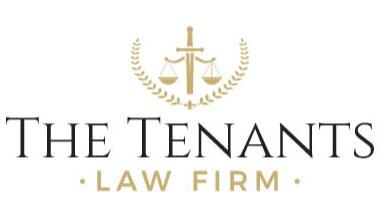Landlord Liability for Slip and Fall Injuries
If a person slips and falls, then sustains an injury on the premises of a property which they are renting or leasing, is the landlord liable for the injuries they suffered? There is not a straightforward answer to this question because the outcome depends on a variety of factors, such as why and where the person fell. In most instances, the court will determine whether there was landlord negligence involved in a person's slip and fall case; and if the court decides there was no negligence, the landlord will not be liable for the injuries. There are many different conditions and variables that the court may consider to determine if the landlord 's negligence caused an injury sustained on the rental property premises and if that means they should be held liable for damages.
Slip and Fall from Landlord Negligence
In a slip and fall lawsuit, as in most personal injury cases, it will only be possible to win a lawsuit if a person can demonstrate that their landlord's negligence caused their injury.
The first thing to prove to win a slip and fall lawsuit is that the landlord was negligent. In other words, just because someone slips and falls on the property they are renting does not mean that the landlord was negligent. Instead, the landlord must create or cause a dangerous, unsafe condition on the rental property that causes the injury. It is also important to note that just because a hazardous condition exists on a rental property, it does not necessarily indicate that the landlord was negligent. It is necessary to show that the landlord should have known or knew about the unsafe condition and failed to remedy it to demonstrate a landlord's negligence.
Slip and Falls within the Premises of a Rental Property
Whether or not the landlord possessed knowledge of the unsafe situation that led to a slip and fall will be critical in the court's determination of the landlord's liability. For example, if a leak in the roof of the rented property caused the person to fall, the responsibility borne by the landlord will depend on their knowledge of the leak. If the landlord knew about the leak and did nothing to amend it, they may be found liable for the injury.
Slip and Falls in the Exterior or Common Areas of a Rental Property
If a slip and fall occurs in one of the common areas of the property, or somewhere around the exterior premises, the court’s determination of the landlord’s liability will draw heavily on the terms of the lease. If the slip and fall happened because the snow on the walkway to your door was not shoveled, and the terms of the lease dictate that the landlord is responsible for shoveling snow off the walk, the court is more likely to determine that the landlord is liable for the renter’s injury.
